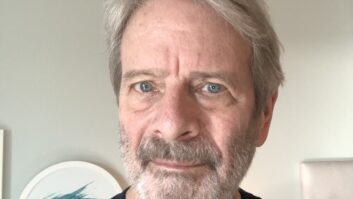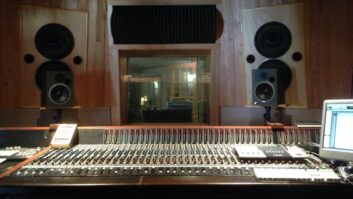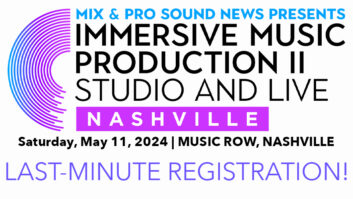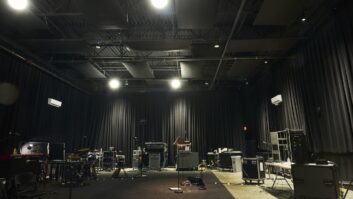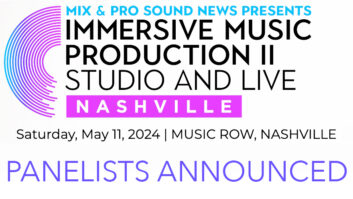Second NatureNashville is a town with a big heart and open arms. For all the talented natives it has produced through the years, there are many more singers, songwriters, musicians and producers who gravitated there following a dream. Nashville gives them a sense of place and purpose in exchange for their best creative efforts.
It is here, where the rolling green hills of Tennessee embrace a segment of the music industry, which has grown steadily to rival its coastal counterparts, that Jon Vezner made his home. A native of Minneapolis, Vezner’s songs have been interpreted by Steve Wariner, Janis Ian, John Mellencamp, Kathy Mattea, Reba McEntire, Ronnie Milsap, Lorrie Morgan, Nanci Griffith, McBride & the Ride, and Diamond Rio.
Back where it all began, Vezner played in a number of bands prior to completing a program of study in the mid-’70s that led to a B.A. in music theory and education from Minnesota Southwest State University. With his formal training complete, he felt obligated to forge a career as an educator but still couldn’t shake his love for songwriting. By the early ’80s, he managed to get a couple of his tunes recorded by country acts Dave and Sugar and Mel McDaniel through a publishing company called Wrensong. Based in Minnesota, Wrensong ultimately set up offices on the ground floor of a house on Nashville’s Music Row. In the apartment above the offices, a demo singer and one-time waitress named Kathy Mattea was struggling to both pay the rent and keep her dream alive of becoming a recording artist. Fate and a dead car battery conspired to introduce the pair one day, when Vezner, while visiting the Wrensong offices, supplied the jumper cables that put Mattea back on the road.
Vezner moved to Nashville permanently in 1986. on Valentine’s Day of 1988, he married Mattea, who by now was running on full-charge with a PolyGram deal, which had yielded four albums. Having established a reputation around town as the writer of songs showcasing his dry wit and wide-ranging emotional literacy, Vezner dedicated himself to married life while continuing to expand his catalog of recorded titles, which oddly didn’t include any by his wife. It wasn’t that Mattea didn’t like his songs. Quite the contrary, she loved them. What she didn’t want was to be accused of using her own fame to fuel his career.
Things changed, however, with the release of Willow in the Wind. In Vezner’s own words, that’s when Mattea finally caved in “by chance, not choice,” and laid down a track he co-wrote with Don Henry, “Where’ve You Been?” The results were memorable, to say the least. Propelled by the song, Mattea soared to new heights with a second consecutive CMA female vocalist award, a Grammy for Best Female Country Performance and Gold status for the album. Critical acclaim came to Vezner as well, in the form of Song of the Year honors from both the Country Music Association and the Academy of Country Music in 1990, plus a Grammy for Best Country Song that same year.
Mattea has since gone on to record other titles either penned or co-written by her husband, including “A Few Good Things Remain,” “Time Passes By,” “Whole Lotta Holes” and “Who’s Gonna Know,” but the couple for the most part, has historically kept a notable distance in their professional lives.
These days, with Mattea touring and working on a follow-up record to her 1997 hit, Love Travels, Vezner writes for Warner-Chappell Music and has additionally expanded his industry presence by taking a seat at the producer’s desk. Frequently working from a studio occupying the lower level of the home he shares with his wife not far from Music Row, he and alter ego Mick Conley have lent their production efforts to a number of projects, including Emmy-winner Victoria Shaw’s indie endeavor old Friends, New Memories and veteran singer/songwriter Danny o’Keefe’s latest disc, Running From the Devil.
You’ve come a long way as a songwriter. Was it a natural progression to begin producing as well?
I approach producing as a labor of love, and I only get involved in projects I want to get involved with. It’s been an instinctive progression in the sense that I built my home studio primarily for demos, and it naturally became a place for turning out complete projects, too. I love coming up with musical ideas and arranging them. I was a music major after all, so being a producer is really second nature.
Victoria Shaw is certainly well-known in Nashville for her songwriting and collaborations with Garth Brooks and others. What were your goals when it came to committing her own voice to tape?
I just wanted to capture Victoria in a more honest state than I’ve ever heard done for her before, make it less about production, actually, and more organic. She tends to lean toward pop in her writing, but this project has a lot of folk influences, too. of the 14 tracks we cut, most were ballads, and all were original compositions except for one.
Was all of the tracking for this record done in your home studio?
Some of the tracks were cut here in my home studio using our V8 digital workstation from Digital Audio Labs. others were done in Nashville at Wright Studios using an otari RADAR hard disk recorder. A third of the tracks were mixed here using the V8 as well. The rest were mixed back at Wright. All of the editing was done here on the V8. As many as 32 tracks went down on some things and as few as 16 on others. overall, we used a lot of different instruments. In addition to piano, bass, guitar and drums, one piece has a full string arrangement, plus there are various wind instruments-recorders, saxophones, flutes and whatnot.
Let’s talk about the other project you’ve completed for Danny o’Keefe…
Danny is an incredible songwriter and musician. I can’t tell you how excited we were when we found out that his new disc, Running From the Devil, was going to pass through here. Danny, of course, had one of his first tastes of the big time back in the ’70s with “Good Time Charlie’s Got the Blues.” His song “The Road” became kind of a signature song for Jackson Browne later on, and Judy Collins did well with his composition “Angel Spread Your Wings.” While the basic tracks for Running From the Devil were done at Clubhouse Studios up in Hendersonville [Tennessee], the mix was done here entirely. I guess you could say I served as the executive producer on that project, but Mick Conley essentially produced and engineered the entire thing and even played some guitar on it, too.
It seems that just about anyone who meets Jon Vezner can’t avoid meeting Mick Conley as well. How long have you been associated?
Well, he’s my engineer, co-producer or both on virtually everything. We can finish each other’s thoughts sometimes; it’s frightening. I hooked up with Mick about ten years ago through Kathy. She hired him to mix front-of-house for her touring act-something he still does, and you couldn’t pry him loose even with a crowbar. After he got the live gig going, he co-produced a songwriter record with me, which was picked up by Liberty Records. Liberty, as you may recall, later became Capitol Records.
Would you ever consider producing one of your wife’s records?
Ben Wisch, who co-produced singer/songwriter Marc Cohn’s first two albums, is working with her on her current project, which should be done by the end of the year. We don’t cross paths professionally by choice. So I can’t say we’d work together, because it just works better if we don’t.
With all the explosive growth taking place in Nashville, is it still a place of opportunity?
Absolutely. There are just so many things you can do. First and foremost, it offers great songs. This is a songwriter’s mecca, the last of the places you can walk down the street and find tons and tons of songs. The players are second to none as well. You can go down that same street and find a guy tending bar who is also a fabulous guitar player. Good musicians are just all over the place. As a producer, you couldn’t ask for a better environment to live, work and create in.
Even if you’re a Nashville insider, you may never have heard of Mick Conley. That’s because he spends a lot of time hidden in the bottom reaches of Jon Vezner and Kathy Mattea’s house, hunkered over a console or digital workstation in their home studio. Which is okay by him, as that’s where he does some of his best work as an engineer and producer.
Although he is the quintessential quiet, behind-the-scenes professional, getting Conley to speak out on his role within the Vezner/Mattea household was easy enough. About as friendly a guy as you could meet in any town, even for a place like Nashville (which is known for its conspicuous lack of attitude), Conley is an Eastern Kentucky native who made his way to Tennessee ten years ago to take a touring gig with Mattea as her FoH engineer. A jazz guitar major in college, he, like many, had become disillusioned with playing the club scene and stepped into engineering as an escape. Little did he know when he signed on to hit the road with Mattea that he would ultimately wind up co-producing with Vezner and taking the helm as the driving engineering force within the creative couple’s potent home studio.
An average day for Conley in the Vezner/Mattea studio may start with adding some guitar parts to a demo. Next to him in the control room is the heart and soul of the room, a V8 digital audio workstation from Digital Audio Labs. Twenty-four tracks of ADAT are at hand in the racks as well, which can be supplemented by an additional machine to facilitate a total of 32 tracks. Depending upon the project at hand, Conley and Vezner will track directly to the ADATs, an otari RADAR hard disk recorder or a 2-inch 16-track machine, which they will then transfer to the V8 for manipulation. A 32-channel Soundcraft Ghost with mute automation stands in as the main console, with monitoring through Tannoy 6.5s.
Conley, who freely admits that his computer experience prior to building this room was limited to “Pac-Man and stuff like that,” quickly took to the PC-based V8 workstation. “It’s a complete studio in itself,” he says. “Anything can be done with this rig, which is especially crucial in here from a space-saving standpoint alone. Some projects literally go through the V8 from microphone to master. I use it as an arranging tool, for mixing, editing, you name it. We’ll even track directly into it at times.”
The V8 was configured by Conley for this application with Waves plug-ins used for compression, EQ and reverb. Additionally, with Digital Audio Labs’ modular “Big Block” I/o expansion capabilities, Conley can run as many as 16 tracks within the system with all available effects, outboard processing and ADAT material, totally in sync.
on the outboard side of the equation, the project studio has been armed with a healthy complement of tube gear in the form of preamps, which include an Aphex 107 Tubessence, dbx Blue and Silver Series preamps, as well as a Pro 6 from Audio Toys Inc. and a DigiTech VTP-1.
Compression finds its way into the scheme with the aid of dbx 160S Blue and Silver Series units, an Aphex Dominator, and ACP-8 and ACP-22 units from PreSonus, among other pieces. Effects outside of those supplied by the V8 come from Lexicon (PCM60, PCM80 and LXP-1), Yamaha (an SPX-II) and SPL (a Vitalizer).
Used primarily for spatial enhancement, the Vitalizer’s presence is a carryover from lessons Conley learned on the road with Mattea. “I used it live to envelop Kathy with voices on all sides,” Conley explains. “The vocals in her act are huge, and this provided me with a way to ensure that everything is heard in its own right. Through experimentation with the device in the studio, I’ve found that I can achieve the same effects in my recordings. The depth and placement are phenomenal.”
Conley recently produced and engineered Danny o’Keefe’s Running From the Devil entirely within the confines of the Vezner/Mattea project studio. He is currently at work touring and engineering overdubs on Mattea’s forthcoming record produced by Ben Wisch and Keith Stegall.
“I enjoy the latitude for experimentation that can only be found in a home studio,” he relates on a closing note. “I don’t have to settle for a track that simply ‘works’ here. There’s plenty of space to explore many possibilities, because you’re not paying for the time. of course, you can shoot yourself in the foot with all that time, too, by dedicating too much effort to something that provides no gain. But overall, I like the freedom a place like this affords.”

